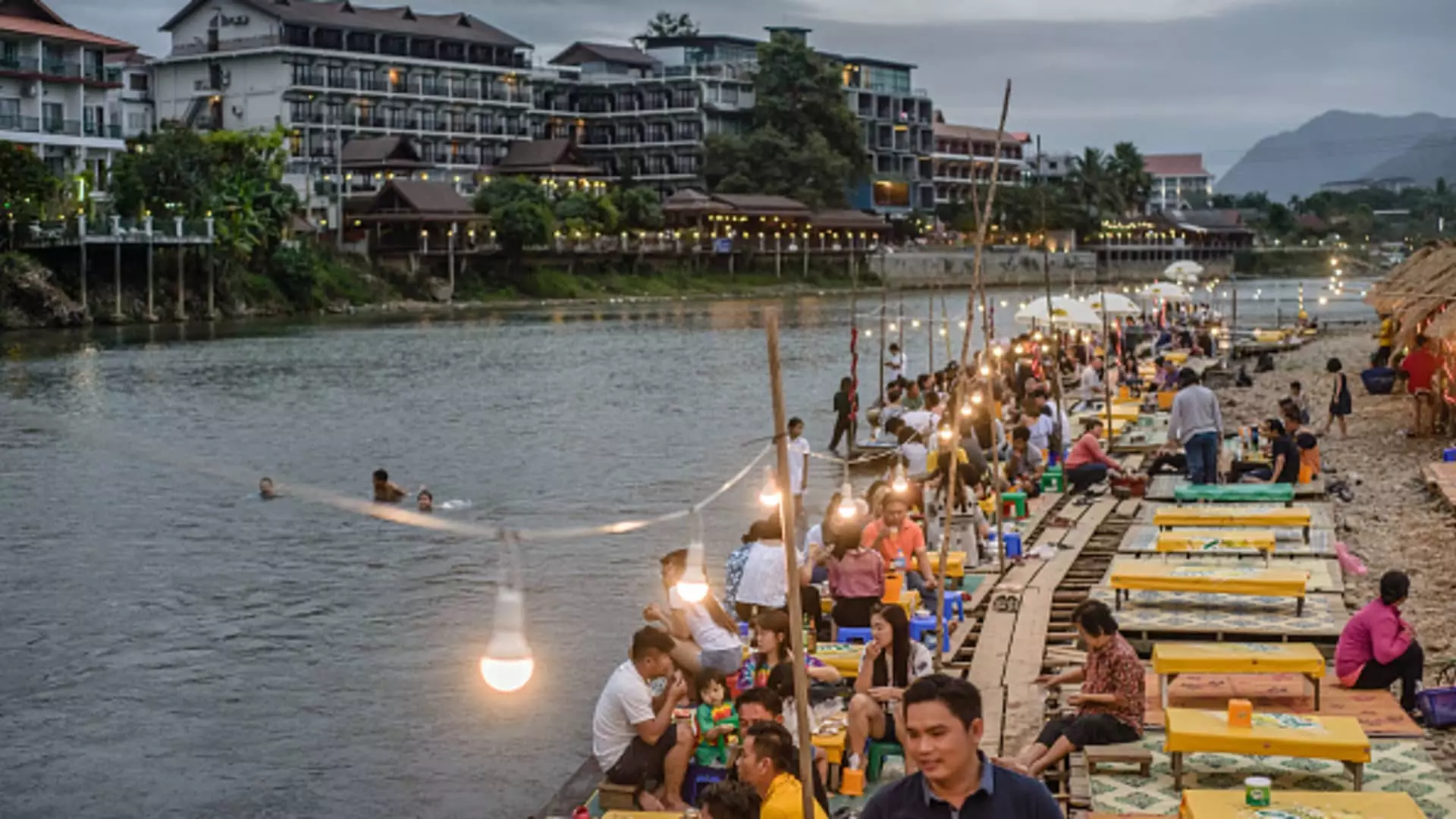In a heartbreaking turn of events, six travelers have lost their lives due to suspected methanol poisoning after visiting Vang Vieng, a popular tourist destination in Laos, earlier this month. This tragic incident involved individuals from diverse backgrounds, including two Australians, two Danes, one British citizen, and one American, all believed to have consumed alcohol tainted with methanol. Reports suggest that these victims ingested this noxious substance during a night out, leading to their untimely deaths. For many of these tourists, the allure of partying in a vibrant locale turned into a nightmare, overshadowing the festive atmosphere with an alarming reminder of the hidden dangers that can accompany lax regulations concerning alcohol production and distribution.
Methanol, an industrial alcohol that is significantly cheaper than ethanol—the type typically found in beverages such as beer and wine—has proven deadly in even minute quantities. This colorless and odorless substance can cause catastrophic health issues, including permanent blindness or even death, with only 30 milliliters leading to fatality. The recent incidents in Laos are part of a more extensive issue of methanol poisoning, which is often exacerbated by illegal alcohol trade and insufficient consumer awareness. As elucidated by organizations like Doctors Without Borders, the lack of public education regarding methanol and its effects contributes significantly to the ongoing crisis.
Moreover, methanol poisoning is not limited to Southeast Asia; it has been documented across the globe, yet incidents disproportionately affect regions with less robust alcohol regulation. The organization highlights that since 2019, there have been nearly 1,000 recorded incidents of methanol-related poisoning, resulting in the deaths of about 12,900 individuals. This grim statistic indicates a global health epidemic that deserves greater attention, especially in countries with thriving tourism sectors.
A critical aspect of tackling methanol poisoning is raising awareness among travelers, especially those looking to experience the nightlife in foreign destinations. Local customs and practices regarding alcohol production vary significantly, and many tourists may unknowingly consume cocktails or spirits crafted from unregulated sources. This concern is particularly salient in areas where homemade or unlicensed liquor is prevalent. For instance, visitors to Bali are advised by a Facebook group aptly named “Just Don’t Drink Spirits in Bali” to avoid cocktails made from unmarked bottles and to stick to safer options such as beer or wine.
Authorities must also develop and enforce stricter regulatory frameworks to ensure safe alcohol production and distribution. Without adequate oversight and public awareness campaigns, these incidents are likely to recur, continuing to endanger both locals and travelers alike. Public health organizations can play a pivotal role in educating both citizens and visitors on the risks associated with methanol consumption, emphasizing the importance of consuming alcohol only from reputable sources.
Iran has notably suffered from severe cases of methanol poisoning, especially during the early days of the Covid-19 pandemic when misinformation led many to believe that methanol could serve as a disinfectant against the virus. The consequential mass poisoning of over 5,800 people in a single month highlights the dire need for improved health communication strategies globally. Such events underline how quickly misinformation can proliferate, further complicating an already hazardous situation.
Organizations like Doctors Without Borders are actively working to raise awareness of methanol poisoning, recommending travelers to exercise caution—especially in informal drinking establishments. Their guidelines advocate for avoiding alcohol provided in unlabeled containers and caution against drinking in unregulated settings, where the risk of coming into contact with tainted beverages is substantially higher.
The recent spate of methanol poisoning incidents serves as a somber reminder of the hidden dangers lurking within the alcohol supply chain, especially in popular tourist destinations. As the world becomes increasingly interconnected, it is crucial that travelers and authorities alike prioritize safety over convenience. By fostering a culture of vigilance and awareness, we can work towards safeguarding the health and well-being of tourists worldwide, ensuring that the explorations and adventures of travel remain joyful and free from tragic outcomes.

